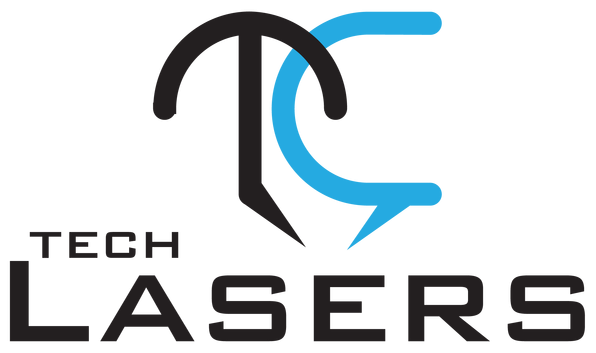The surge in open source has revolutionized software development, fostering innovation and collaboration across diverse communities. Allowing developers to share code freely accelerates progress and encourages collective problem-solving. This movement has led to the creation of robust, reliable software solutions that benefit businesses and individuals alike, promoting transparency and accessibility in technology.
Introduction to Open Source
Open source represents much more than a distribution model; it embodies a transparency, collaboration, and innovation philosophy. By allowing anyone to view, modify, and enhance its code, open-source technology fosters a global community where knowledge is shared freely and collectively. Technology has advanced due to this collaborative strategy, allowing projects to gain from various viewpoints and experience levels.
Among the top open source projects that demonstrate the power of this collective intelligence are giants like Linux and Apache. These projects have led to innovative breakthroughs and become integral components of countless systems we rely on daily, illustrating the profound impact of open-source development.
The Evolution of Open Source Software
The journey of open-source software (OSS) is intriguing and remarkable. Its roots can be traced back to when sharing was predominantly practiced within academic and research communities, promoting an open exchange of ideas and resources. OSS has gradually developed over the years into a vital component of contemporary technological infrastructure, influencing our interactions with and use of digital systems in various fields.
With the advent of platforms like GitHub, the landscape of OSS has transformed, offering unprecedented accessibility and collaboration. These platforms have removed traditional barriers, enabling software developers from all corners of the globe to contribute to projects, share insights, and collectively create innovative software solutions. This evolution signifies a shift in software development approaches, highlighting the power of collective effort and open collaboration.
Key Benefits of Open Source Development
Open-source development presents many advantages that appeal to individual developers and large organizations. One of the primary benefits is cost-effectiveness. Since open-source software is typically available free of charge, businesses can allocate their budgets to other essential areas such as research and development, support services, and administrative costs.
Furthermore, open source enhances security. The code’s openness allows countless developers and security experts to examine and scrutinize it, quickly identifying and resolving vulnerabilities. This collective vigilance contributes to creating more secure and reliable software systems.
Another significant advantage is flexibility. Open-source solutions can be customized to meet users’ needs, offering unparalleled adaptability. This flexibility enables businesses to fine-tune software to align perfectly with their operational requirements, thus enhancing efficiency and productivity.
Lastly, open-source development is supported by a vibrant community. This network of developers, users, and enthusiasts fosters knowledge sharing, continuous improvement, and support, fueling the advancement of open-source projects and technologies.
Successful Open Source Projects
Several open-source projects have reached iconic status due to their remarkable success and influence on the technology industry:
- Linux: A versatile and robust operating system, Linux has been integral in powering everything from web servers to mobile devices and enterprise solutions. Its success lies in its adaptability and strong community support.
- Apache HTTP Server: Apache, one of the most popular web servers, has been essential to creating and operating the World Wide Web.
- Mozilla Firefox: As a web browser that prioritizes user privacy and control, Firefox exemplifies the user-centric approach of open-source development.
These projects underscore the tremendous potential of open-source initiatives and highlight the value of community-driven development in creating impactful and groundbreaking technological solutions.
Challenges Faced by Open Source Communities
While open-source development offers numerous benefits, it also has its challenges. One major challenge is maintaining community engagement, vital for sustaining project momentum and continuously innovating. Ensuring steady contributions and participation requires effective community management strategies and communication channels.
Maintaining code quality and managing potential security risks are also pressing concerns. With contributions coming from various sources, ensuring consistency and high-quality standards can be demanding. Vigilant code review processes and comprehensive testing protocols are essential to upholding security and reliability standards. For an in-depth analysis of these challenges, consider reading this article on overcoming common issues open-source projects face.
The Future of Open-Source Technology
There are tremendous possibilities for open-source technologies in the future. As the technology environment develops, open source will influence new developments like blockchain, AI, and machine learning. These advancements promise to open new avenues for innovation and transformation, positioning open source as a critical component in developing next-generation technologies.
Open source will also continue to drive collaboration and creativity within industries as organizations increasingly recognize its value in fostering innovation and addressing complex challenges. Explore this tech news report for a deeper dive into future trends in open source.
Practical Steps to Contribute to Open Source
Contributing to open-source projects can be a fulfilling and enriching experience, offering the chance to develop skills and collaborate with a global community. Here are some practical steps to help you get started:
- Find a Project: Identify an open-source project that aligns with your interests and skill set. Consider starting with projects that have clear contribution guidelines and active communities.
- Engage with the Community: Join forums, mailing lists, or chat platforms associated with the project to connect with other contributors and community members, share ideas, and seek advice.
- Start Small: To gain an understanding of the project structure and workflow, begin by tackling minor tasks, such as bug fixes or documentation improvements.
- Follow Contribution Guidelines: Adhere to the contribution guidelines outlined by the project to ensure your contributions are aligned with the project’s requirements and standards.
You can enhance your technical skills through open-source involvement and contribute to meaningful projects that improve technology.

 Why Your Link Building Efforts Might Fail
Why Your Link Building Efforts Might Fail  How to Request or Give Remote Control in a FaceTime Call on iPhone
How to Request or Give Remote Control in a FaceTime Call on iPhone  The Rise of Intelligent Automation in Business Operations
The Rise of Intelligent Automation in Business Operations  The Best Ideas for Designing Your Custom Printed Ring Binder
The Best Ideas for Designing Your Custom Printed Ring Binder  How Technology is Changing the Way We Play Hearts
How Technology is Changing the Way We Play Hearts  The Rise of Open Source: A Journey to Innovation and Collaboration
The Rise of Open Source: A Journey to Innovation and Collaboration  How SD-WAN Is Revolutionizing Business Networks
How SD-WAN Is Revolutionizing Business Networks  Effective Digital Advertising Strategies for Modern Businesses
Effective Digital Advertising Strategies for Modern Businesses  Tips for Marketing Dental Packages: Easy Ways to Grow Your Reach
Tips for Marketing Dental Packages: Easy Ways to Grow Your Reach 